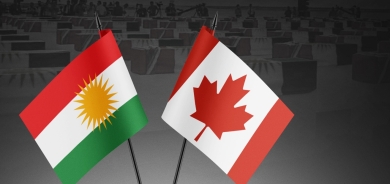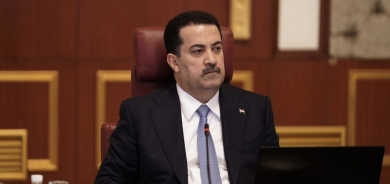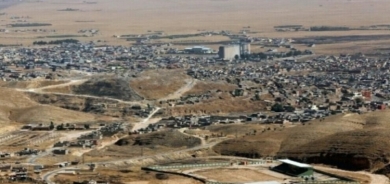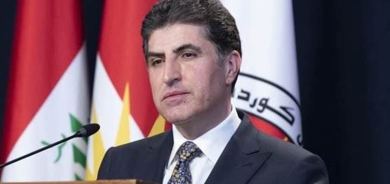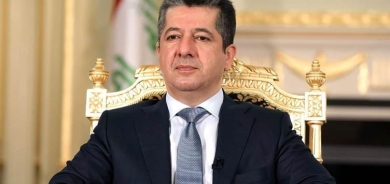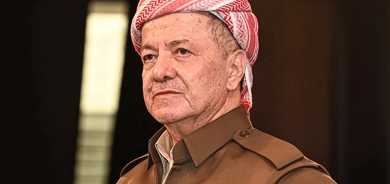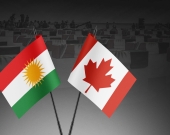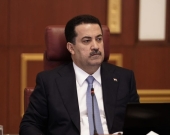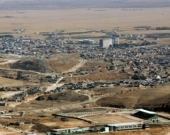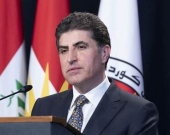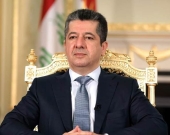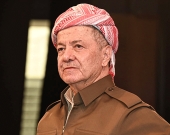Kurdistan President Warns Baghdad: ‘We Cannot Compromise’

He said that Iraq is at risk.
“With so many sacrifices, the people of Kurdistan will never step backwards but will always go forward,” Barzani vowed, speaking at a burial ceremony for the remains of 93 victims of Saddam Hussein’s murderous 1980s Anfal Campaign against Iraq’s large Kurdish minority.
“If Iraq’s rulers think they can use the pressure card against us, then I tell them frankly that we will take such a stance that they have never imagined. Let them wait and see whether or not we can do so,” Barzani challenged.
Iraq’s Shiite-led government is locked in a serious dispute with the Kurdistan Region. Iraqi Prime Minister Nuri al-Maliki insists that oil revenues from oil exports that Erbil wants to begin to Turkey through a new pipeline should be handled by its State Oil Marketing Organization.
The Kurds want to handle export and revenues themselves, invoking the constitution to underpin their full rights.
But in order to put pressure on the Kurds, Maliki and his close advisors have cut the KRG from the national budget. In earlier comments, Barzani called that tantamount to “a declaration of war.” He has said that the only thing keeping the Kurds attached to Iraq is the constitution, otherwise they could announce a referendum and seek independence.
“We are not used to living under tyranny,” Barzani declared at Thursday’s ceremony, attended by top government officials, MPs and foreign diplomats.
The Kurdish president said that Iraq’s Kurds had suffered and sacrificed in order to be masters of their own fate and that they “will not let others decide for them.”
In his speech, Barzani said that the threats from Baghdad are not over, and echoed growing comments by Kurdish officials that Iraq is at risk of breaking up over the disputes.
“Iraq is at risk,” Barzani said. “Democracy, federalism, and coexistence are in recession and at grave risk. Partnership has lost its meaning.” He added that Baghdad is deliberately causing troubles for the Kurds under different pretexts.
“It has nothing to do with oil or the budget,” Barzani said, referring to the reasons for the deterioration of relations between Baghdad and Erbil. “The issue is much bigger than that: It is about breaking the pride and dignity of the Kurds and Kurdistan.”
The Kurdish president said Iraqi leaders are intent on marginalizing the Kurds and treating the autonomous region as a mere province “without any authority.”
Referring to past negotiations between Baghdad and Erbil, Barzani said: “Kurdish delegations have visited Baghdad many times in the past, but instead of solving the problems Baghdad has only cut the budget. This is a hostile act and we cannot compromise.”
Before the remains of the Anfal victims, kept in a coffin, were wrapped in the Kurdish flag and transported for burial, Barzani told the audience and relatives of the dead that the situation with Baghdad cannot continue.
“We have to reassess our relations with Baghdad,” he said. “We cannot live under threat all the time.”
“We don’t want trouble for Erbil or Baghdad,” he concluded. “We do not trade our freedom for anything.”
Meanwhile, Aram Muhammad, the Minister of Anfal and Martyrs Affairs, said that locating and retrieving the remains of victims has not been easy, due to the security situation in Iraq.
“After years of the Anfal genocide by the Baath regime, the job of finding the mass graves has still remained a challenge due to the geography of the area and the security situation,” he said.
Muhammad said that the latest remains were found in December last year, near the border of Saudi Arabia in Iraq’s southern desert.
“Most of the victims had been shot by firing squad; all of them are male and over the age of 20,” he said.
The remains belonged to 8,000 members of the Barzani tribe, who were taken by the Iraqi army in the early 1980s.
According to Muhammad, so far the remains of several hundred victims have been returned to Kurdistan, 503 of them in 2005.
Rudaw

